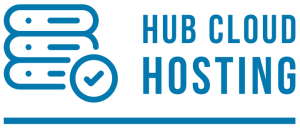“The Scalability Battle: Cloud Hosting vs. Traditional” explores the ongoing debate between cloud hosting and traditional hosting methods, specifically focusing on their scalability capabilities. This article provides a comprehensive analysis of the advantages and limitations of both approaches, allowing readers to gain a deeper understanding of the scalability potential offered by each. By comparing key factors such as flexibility, cost-effectiveness, and performance, readers can make informed decisions when it comes to selecting the most suitable hosting solution for their business needs.
Scalability of Cloud Hosting Vs. Traditional
The scalability of hosting solutions has become a critical consideration for businesses in this digital age. As organizations strive to meet the demands of their growing user base, the ability to scale resources effectively and efficiently is paramount. In this article, we will explore the scalability of two commonly used hosting options – cloud hosting and traditional hosting. We will examine the benefits and challenges of scalability, delve into the features of each hosting option, and provide insights to help businesses make an informed decision when choosing between cloud hosting and traditional hosting.
Understanding Scalability
Before delving into the specifics of cloud hosting and traditional hosting, it is important to first understand scalability itself. Scalability refers to the ability of a system, network, or infrastructure to handle an increasing volume of work, resources, or users. In the context of hosting, scalability is the capacity to expand or shrink computing resources as needed to accommodate changing demands. A scalable hosting solution not only allows businesses to seamlessly adjust their resources based on user demand but also ensures optimal performance and reliability.
Benefits of Scalability
Scalability offers numerous benefits that can positively impact businesses across different sectors. By embracing scalability, organizations can:
- Improved Performance: Scalability enables businesses to handle increased traffic and workload, leading to enhanced website and application performance. As resources are allocated dynamically, businesses can ensure that their systems run smoothly even during peak usage periods.
- Cost-Effectiveness: Scalability allows businesses to efficiently allocate resources based on demand. With cloud hosting, businesses only pay for the resources they use, eliminating the need for costly upfront investments and ensuring cost-effectiveness as resources are scaled up or down according to demand.
- Flexibility: Scalability enables businesses to adapt and respond to changing circumstances quickly. Whether it’s rapidly scaling up during seasonal peaks or downsizing during quieter periods, organizations can easily adjust their hosting resources to align with their current needs.
- Increased Reliability: Scalable hosting solutions distribute resources across multiple servers, reducing the risk of server failures and improving overall reliability. With redundancy built into the system, businesses can ensure that their services remain available even in the event of hardware or software failures.
- Enhanced User Experience: With scalability, businesses can provide a seamless and optimized user experience. Faster load times, reduced downtime, and the ability to handle increased user traffic all contribute to an improved experience for customers, leading to higher satisfaction and increased customer loyalty.
Challenges of Scalability
While scalability offers numerous benefits, it also presents its fair share of challenges. Businesses must be aware of these challenges and proactively address them to ensure a successful scalability implementation. Some of the key challenges include:
- Complexity of Implementation: Scaling resources, particularly in complex systems, can be a challenging endeavor. Businesses must invest time and effort in designing and implementing scalable architectures that can handle increased loads seamlessly.
- Management and Monitoring: As resources are dynamically allocated, effective management and monitoring become crucial. Businesses need to continually monitor their systems, identify performance bottlenecks, and adjust resources accordingly to ensure optimal scalability.
- Potential Security Risks: Scalable hosting solutions can introduce new security risks. As businesses expand their infrastructure, they must ensure that appropriate security measures are in place to protect sensitive data and systems from vulnerabilities and potential breaches.
- Data Transfer and Network Limitations: Scalability may be constrained by network limitations or data transfer speeds. When scaling resources, businesses need to consider the impact on data transfer speeds and network capacity to ensure that scalability does not result in a degradation of performance.
Cloud Hosting: A Scalability Game-Changer
Cloud hosting has emerged as a game-changer in the hosting industry, revolutionizing the way organizations scale their resources. Unlike traditional hosting, where businesses rely on physical servers located on-premises or in data centers, cloud hosting leverages the power of virtualization and distributed computing to provide on-demand scalability. Let’s explore the features that make cloud hosting an attractive option for businesses looking to expand their hosting capabilities.
Advantages of Cloud Hosting
Cloud hosting offers several advantages over traditional hosting, making it an ideal choice for businesses that prioritize scalability. Some of the key advantages include:
- Unlimited Scalability: Cloud hosting allows businesses to scale their resources seamlessly, providing virtually limitless scalability. With the ability to quickly add or remove resources based on demand, businesses can ensure that their systems perform optimally even during periods of high traffic.
- Seamless Resource Provisioning: With cloud hosting, businesses can provision resources instantly with just a few clicks. Whether it’s additional computing power, storage, or bandwidth, the flexibility and agility of cloud hosting allow businesses to allocate resources as needed, eliminating delays and improving operational efficiency.
- Reduced Downtime: The distributed nature of cloud hosting ensures high availability, minimizing downtime due to hardware failures or maintenance. With redundant systems and automatic failover mechanisms, businesses can maintain uninterrupted service, even if a server or data center experiences issues.
- Cost Efficiency: Cloud hosting operates on a pay-as-you-go model, where businesses only pay for the resources they use. This eliminates the need for upfront investments in hardware and allows businesses to align their hosting costs with their actual usage, significantly reducing overall expenses.
- Global Availability: Cloud hosting providers often have multiple data centers located across different regions, enabling businesses to expand their presence globally. With geographically dispersed infrastructure, businesses can cater to users from different locations, ensuring low latency and an enhanced user experience.
Disadvantages of Cloud Hosting
While cloud hosting offers compelling advantages, it is not without its disadvantages. Businesses should carefully consider these factors before committing to cloud hosting:
- Dependency on Internet Connectivity: Cloud hosting relies on a stable Internet connection for businesses to access their resources. Any disruptions or downtime in the internet connection can impact businesses’ ability to access and use their hosted services.
- Data Security Concerns: Entrusting sensitive data to a third-party cloud hosting provider raises concerns about data security. Businesses must ensure that the cloud provider implements robust security measures and adheres to industry standards and regulations to safeguard their data.
- Lack of Control: With cloud hosting, businesses have limited control over the underlying infrastructure and hardware. While this allows for easy scalability and resource allocation, it can also restrict customization options and limit businesses’ ability to fine-tune their hosting environment.
- Potential Vendor Lock-In: Migrating to a different cloud provider or transitioning back to traditional hosting can be challenging and costly. Businesses must carefully consider the potential lock-in effect of cloud hosting and evaluate the long-term implications before making a commitment.
- Limited Customization: Cloud hosting solutions often come with predefined configurations and limited customization options. Businesses with specific hosting requirements or complex infrastructures may find it challenging to tailor the hosting environment to their exact needs.
Traditional Hosting: A Reliable Option?
While cloud hosting has gained immense popularity in recent years, traditional hosting remains a reliable option for businesses with specific requirements and preferences. Traditional hosting, also known as on-premises hosting or dedicated hosting, involves hosting applications and data on physical servers that are either owned or leased by the business itself. Let’s explore the features and advantages of traditional hosting.
Overview of Traditional Hosting
In traditional hosting, businesses own or lease dedicated physical servers to host their applications and data. These servers are generally located on-premises or in leased data centers. Traditional hosting provides businesses with greater control over their infrastructure, allowing for custom configurations and fine-tuning of the hosting environment to meet specific requirements.
Scalability Limitations
One of the main limitations of traditional hosting is its scalability. As businesses rely on physical servers, scaling resources requires additional hardware investments, which can be time-consuming and costly. Traditional hosting is typically not as flexible as cloud hosting when it comes to rapidly adjusting resources based on demand. Scaling traditional hosting infrastructure may involve setting up additional physical servers, which can result in longer deployment times and increased maintenance efforts.
Physical Hardware Dependency
Traditional hosting involves a higher level of physical hardware dependency compared to cloud hosting. With physical servers, businesses need to maintain and upgrade their hardware regularly to ensure optimal performance. This not only requires additional costs but also necessitates proactive management and monitoring of the hardware lifecycle.
Predictable Cost Structure
One advantage of traditional hosting is its predictable cost structure. With traditional hosting, businesses pay for their hardware and have more control over their ongoing operational costs. While there may be upfront investments in hardware, businesses can plan their hosting expenses more accurately over the long term without the uncertainty of variable resource pricing.
Advantages of Traditional Hosting
Despite its scalability limitations, traditional hosting offers advantages that make it a suitable choice for certain business scenarios:
- Greater Control and Customization: Traditional hosting allows businesses to have complete control over their infrastructure. This level of control enables fine-tuning of the hosting environment to meet specific needs, whether it is configuring security settings, performance optimizations, or software customization.
- Data Security: Hosting sensitive data on dedicated servers provides an added layer of security and control. Businesses can implement tailored security measures, including physical access controls and network security protocols, to protect their data according to their specific requirements.
- Predictable Performance: With traditional hosting, businesses have a dedicated server, ensuring predictable performance and resource availability. This can be particularly crucial for applications with stringent performance requirements or for businesses that handle high volumes of transactions.
- Simplified Management: Traditional hosting, especially when managed in-house, can provide a simplified management experience. Businesses have full control over their servers, enabling seamless integration with existing infrastructure and easier management of software updates and configurations.
- Compliance with Specific Regulations: Certain industries or regions have specific regulatory requirements that mandate data to be stored in dedicated or on-premises infrastructure. Traditional hosting allows businesses to comply with these regulations by ensuring that data remains under their direct control.
Making the Choice: Cloud Hosting or Traditional?
Choosing between cloud hosting and traditional hosting requires careful consideration of several factors. Here are key areas to assess when deciding which hosting option best suits your business needs:
- Considering Scalability Requirements: Evaluate your business’s scalability requirements and growth projections. If flexibility and rapid resource allocation are crucial, cloud hosting may be the better choice. However, if scalability is not a significant concern, traditional hosting may offer sufficient resources for your current and future needs.
- Evaluating Budget and Costs: Consider your budget and cost structure. Cloud hosting’s pay-as-you-go model eliminates upfront costs and allows for easy scaling, making it a cost-effective option for businesses with variable resource demands. Traditional hosting may be more suitable for businesses with predictable resource requirements and longer-term budget planning.
- Assessing Performance Needs: Determine your application’s performance requirements. If your application relies on consistent and predictable performance, traditional hosting provides dedicated resources that can guarantee the necessary performance levels. Cloud hosting’s scalability enables dynamic allocation of resources for applications with varying demands.
- Analyzing Security and Compliance: Consider your data security and compliance requirements. Cloud hosting providers invest heavily in security measures, but if you require meticulous control over your data or must comply with specific regulations, traditional hosting may offer greater peace of mind.
- Considering Future Growth: Evaluate your business’s growth potential. If you anticipate rapid growth or expansion into new markets, cloud hosting’s unlimited scalability and global availability may be better suited to accommodate your future needs.
- Understanding Workload Variability: Assess the variability of your workloads. If your workloads fluctuate significantly, cloud hosting’s ability to scale resources up or down dynamically can ensure optimal performance and cost efficiency. However, if you have a more consistent workload, traditional hosting may offer a simpler and more predictable environment.
- Exploring Hybrid Hosting Options: Consider a hybrid hosting approach that combines the benefits of both cloud hosting and traditional hosting. Hybrid hosting allows businesses to leverage the scalability of the cloud while maintaining control over critical data and applications through traditional hosting methods.
- Consulting with IT Experts: Seek advice from experienced IT professionals or consultants who can assess your specific business needs and guide you in making the right hosting choice. Their expertise can help navigate the complexities and ensure the optimal hosting solution for your organization.
- Case Studies and Real-World Examples: Study case studies and real-world examples of businesses similar to yours that have adopted cloud hosting or traditional hosting. Understanding the experiences and outcomes of others can provide valuable insights and help inform your decision-making process.
Scalability is a critical consideration for businesses when selecting a hosting solution. Both cloud hosting and traditional hosting offer distinct advantages and disadvantages in terms of scalability, cost, control, and performance. By understanding the features, benefits, and challenges of each option, businesses can make an informed decision based on their unique requirements. Whether opting for the unlimited scalability of cloud hosting or the predictability of traditional hosting, organizations must carefully weigh the trade-offs and align their hosting strategy with their business goals, growth projections, and security requirements.








